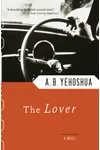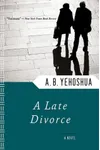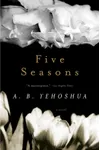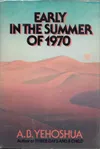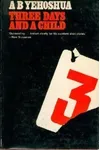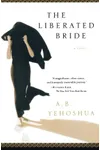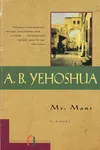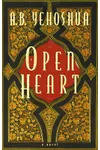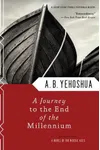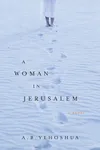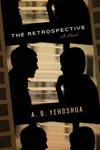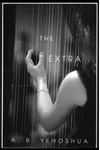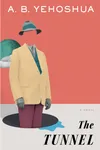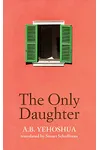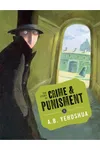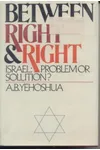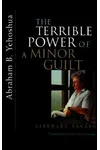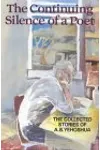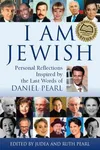Picture an Israeli storyteller who wove the soul of a nation into gripping tales of identity and human connection—meet A.B. Yehoshua! Known as the 'Israeli Faulkner,' this literary giant crafted novels that captured the heartbeat of Israeli society, blending personal dramas with the weight of history. His works, translated into 28 languages, have left an indelible mark on modern Hebrew literature.
Born in Jerusalem in 1936, Yehoshua’s Sephardic roots and sharp intellect shaped his unique voice. His stories, rich with moral dilemmas and cultural reflections, earned him the prestigious Israel Prize for Literature and a global following. Ready to dive into his world? Let’s explore the life, works, and legacy of this master storyteller!
The Making of A.B. Yehoshua
Avraham Gabriel 'Boolie' Yehoshua was born into a fifth-generation Jerusalem family of Sephardic descent, with a father who was a scholar of Jerusalem’s history and a mother who immigrated from Morocco. Growing up in the vibrant Kerem Avraham neighborhood, he soaked up the city’s diverse tapestry. After serving as a paratrooper in the Israeli army during the 1956 Sinai War, Yehoshua studied literature and philosophy at the Hebrew University of Jerusalem. His time in Paris from 1963 to 1967, teaching and engaging with global Jewish communities, sparked his literary career. His first story collection, The Death of the Old Man (1962), announced his arrival as a bold new voice.
Influenced by literary titans like Franz Kafka, Shmuel Yosef Agnon, and William Faulkner, Yehoshua joined the 'new wave' of Israeli writers. Unlike their predecessors, who focused on collective struggles, this generation zoomed in on individual lives and relationships, setting the stage for his groundbreaking narratives.
A.B. Yehoshua’s Unforgettable Stories
Yehoshua’s novels are like intricate tapestries, weaving personal stories with Israel’s complex social and political landscape. His masterpiece, Mr. Mani (1990), is a multigenerational saga told through five reverse-chronological conversations, exploring Jewish identity across two centuries. Its innovative structure and deep dive into Sephardic heritage made it a global sensation, adapted into a stage play.
The Lover (1977) stirred controversy with its raw critique of Israeli society post-Yom Kippur War, following a man’s search for his wife’s missing lover. A Late Divorce (1982) unravels a family’s dysfunction over a tense Passover week, showcasing Yehoshua’s knack for multiple perspectives and ambiguous endings. Five Seasons (1987), a poignant tale of love and loss, was hailed as one of Israel’s most important books since the state’s founding. His works often feature Arab characters, a pioneering move in post-1948 Israeli literature, reflecting his commitment to portraying diverse voices.
Known for his lyrical prose and psychological depth, Yehoshua tackled themes of Jewish identity, intergenerational conflict, and the Arab-Israeli divide. His stories, rooted in Israel’s reality, resonate universally, earning him accolades like the Los Angeles Times Book Prize for A Woman in Jerusalem (2006).
Why A.B. Yehoshua Matters
Yehoshua’s impact on Israeli literature is monumental. As part of the literary trio with Amos Oz and David Grossman, he redefined modern Hebrew fiction, shifting focus from Zionist ideals to personal and moral complexities. His bold political activism, including his support for the Israeli Peace Movement and criticism of both occupation and Palestinian violence, mirrored his fiction’s unflinching honesty. Despite controversy—such as his claim that true Jewish identity thrives only in Israel—his work bridged cultural divides, fostering dialogue between Jews, Arabs, and global readers.
His legacy endures through his 12 novels, plays, and essays, which continue to inspire adaptations and scholarly study. Yehoshua’s ability to hold a mirror to Israeli society while crafting universal stories cements his place as a literary icon. When he passed in 2022, the world lost a storyteller whose voice still echoes.
- Born: December 9, 1936, Jerusalem
- Died: June 14, 2022
- Key Works: Mr. Mani, The Lover, A Late Divorce, Five Seasons
- Awards: Israel Prize (1995), Bialik Prize (1989), Los Angeles Times Book Prize (2006)
Snag Mr. Mani and dive into Yehoshua’s captivating world of identity and history!
